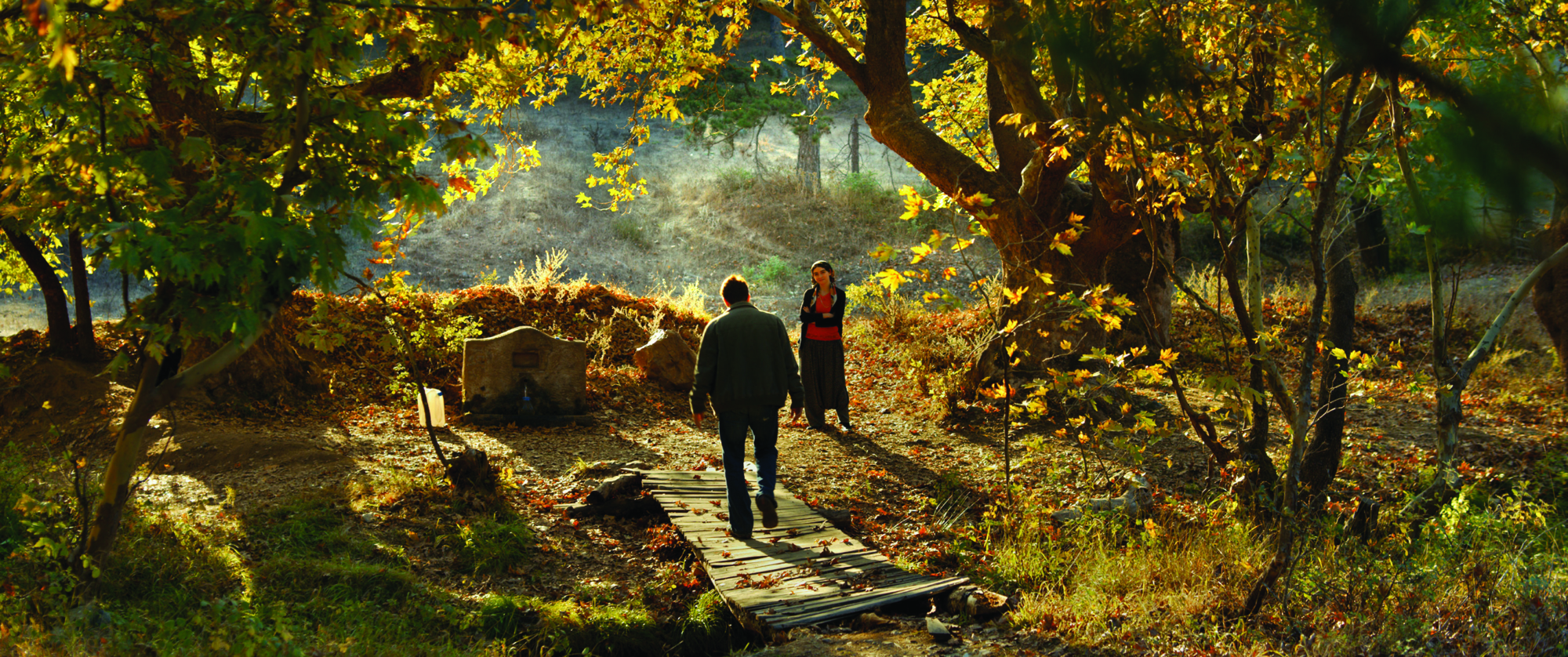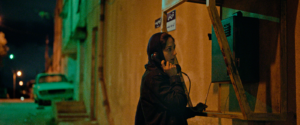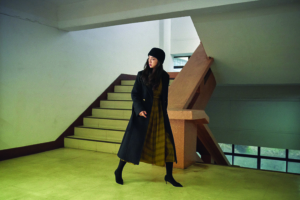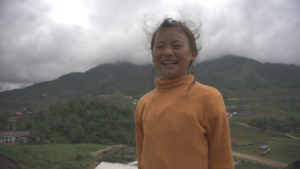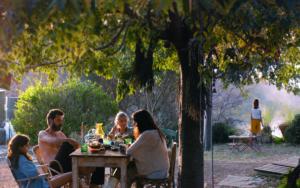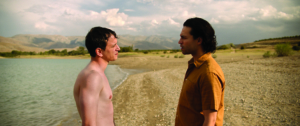Nuri Bilge Ceylan’s films are long, slow, minimalist, ponderous, ruminative and, ultimately, existential-airy art movies delivering nary an explosion in theme, plot or pyrotechnics. Across eight features – from The Small Town (1997) to The Wild Pear Tree (2018) – for which the 59-year-old Turkish filmmaker has won the Palme d’Or, the Grand Prix and Best Director at Cannes, he’s rolled film on all manner of frosty silences, flirting with cinematic tedium as he explores isolation in society and environment. He’s endlessly stared at his characters in the hope of tapping into their interiors (gazing at the landscape of the face, Ceylan reasons, is ‘the only way to get to the truth because, most of the time, the words we say are not true’[1]Nuri Bilge Ceylan, quoted in Benjamin Secher, ‘Nuri Bilge Ceylan on Once upon a Time in Anatolia’, The Telegraph, 15 March 2012, <https://www.telegraph.co.uk/culture/film/filmmakersonfilm/9146812/Nuri-Bilge-Ceylan-on-Once-Upon-a-Time-in-Anatolia.html>, accessed 17 August 2018. ). Action is scant in his films, and so, sometimes, is drama. In his early pictures, there was no score (‘music kills things,’ he spits[2]Nuri Bilge Ceylan, quoted in Geoff Andrew, ‘Nuri Bilge Ceylan’, The Guardian, 6 February 2009, <https://www.theguardian.com/film/2009/feb/06/nuri-bilge-ceylan-interview-transcript>, accessed 17 August 2018. ) and dialogue was almost non-existent, the director preferring to imply things via specific sound design – ‘if you can tell something with the sound, you don’t have to show it,’ he reasons;[3]ibid. Ceylan, with a dexterous touch, ‘put[s] in the sounds that should be heard’[4]Nuri Bilge Ceylan, quoted in Ali Jafaar, ‘Snow Better Blues’, Sight & Sound, vol. 17, no. 2, February 2007, available at, <http://www.nbcfilm.com/iklimler/press_sightandsoundinterview.php>, accessed 17 August 2018. (recurring favourites: distant thunderstorms, barking dogs, howling jackals on the horizon). Putting it poetically, Ceylan ‘works in the subliminal space’, says cinematographer Gökhan Tiryaki,[5]Gökhan Tiryaki, quoted in Will Tizard, ‘Gokhan Tiryaki on Working with Palme d’Or Winner Nuri Bilge Ceylan’, Variety, 21 November 2014, <https://variety.com/2014/artisans/news/gokhan-tiryaki-on-working-with-palme-dor-winner-nuri-bilge-ceylan-1201362580/>, accessed 17 August 2018. the director hoping to get at the ‘metaphysical dimension’ of life,[6]Nuri Bilge Ceylan, quoted in Dave Calhoun, ‘Nuri Bilge Ceylan Interview’, Time Out London, <https://www.timeout.com/london/film/nuri-bilge-ceylan-interview>, accessed 17 August 2018. attempting to ‘understand the dark side of [his] soul’.[7]Nuri Bilge Ceylan, quoted in Michael Phillips, ‘Three Monkeys at Present Is Toast of Cannes’, Chicago Tribune blog, 16 May 2008, <http://featuresblogs.chicagotribune.com/talking_pictures/2008/05/cannes-franceth.html>, accessed 17 August 2018. But, in black-and-white prose, descriptions of his films take on a harder, more unforgiving edge; even Ceylan’s Wikipedia page posits that his movies chronicle ‘the monotony of human lives, and the details of everyday life’.[8]‘Nuri Bilge Ceylan’, Wikipedia, <https://en.wikipedia.org/wiki/Nuri_Bilge_Ceylan>, accessed 17 August 2018.
Over 188 achingly philosophical minutes, The Wild Pear Tree enshrines Ceylan’s auteurist reputation for slow-moving narratives and frosty minimalism. Even his most accessible work, Once upon a Time in Anatolia (2011), spans 157 minutes – a policier in which the search for a dead body on the frigid steppes of central Turkey effectively leads nowhere, let alone to a place of crowd-pleasing cinematic justice. Ceylan followed it up with the 196-minute Winter Sleep (2014), in which a rural landlord sits around his snowbound hotel, self-importantly pontificating. The latter won the Palme d’Or at Cannes, which only really meant that more unsuspecting viewers than usual were drawn into Ceylan’s glacial cinematic world. ‘There’s generally quite a distance between my films and the expectations of most spectators,’ says Ceylan,[9]Nuri Bilge Ceylan, quoted in Eric Kohn, ‘Winter Sleep Director Nuri Bilge Ceylan Explains Why He’s OK with a Small Audience for His Films’, IndieWire, 19 December 2014, <https://www.indiewire.com/2014/12/winter-sleep-director-nuri-bilge-ceylan-explains-why-hes-ok-with-a-small-audience-for-his-films-66815>, accessed 17 August 2018. especially given, he confesses, ‘[t]he story, or what’s happening, is not that important’.[10]Nuri Bilge Ceylan, quoted in Rachel Donadio, ‘A Director Holds Up a Mirror to Turkey’, The New York Times, 22 December 2014, <https://www.nytimes.com/2014/12/23/movies/winter-sleep-a-nuri-bilge-ceylan-take-on-turkish-life.html>, accessed 17 August 2018. Rather than making entertainment or money, Ceylan believes that ‘[c]inema is an endless and transcendental activity […] It’s a tool for a search for meaning’.[11]Nuri Bilge Ceylan, quoted in SF Said, ‘Modern Master in the Old Style’, The Telegraph, 21 May 2004, available at <http://www.nbcfilm.com/uzak/press_dailytelegraphsaid.php>, accessed 17 August 2018.
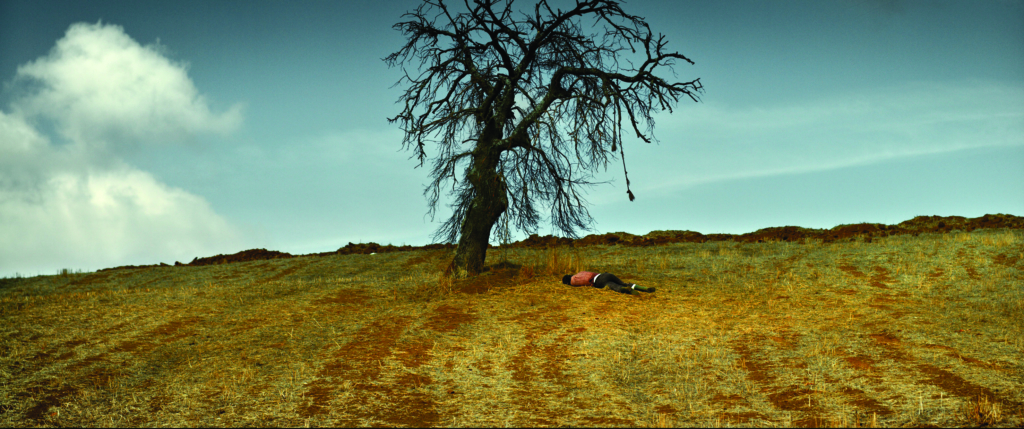
It’s no surprise, then, that his work is often called ‘boring’. It’s a dismissive term that the filmmaker actually embraces. ‘I don’t care about boring the audience,’ Ceylan has claimed. ‘Sometimes, I really want to bore them because out of boredom might come a miracle, maybe days later, maybe years, when they see the film again’[12]Ceylan, quoted in Calhoun, op. cit. – a quote so great that it’s even printed within the packaging of Anatolia’s Australian DVD release.[13]Mileta Rien, ‘Once upon a Time in Anatolia’, screenhub, 26 November 2012, <http://www.screenhub.com.au/news-article/reviews/film/mileta-rien/once-upon-a-time-in-anatolia-192925>, accessed 17 August 2018. Such a quote emanates from Ceylan’s own experiences. When he was studying cinema at Mimar Sinan University in Istanbul (after having already gotten a degree in electrical engineering from Boğaziçi University), the films that most ‘bored’ him would soon turn hugely influential[14]Ceylan, quoted in Calhoun, op. cit. – initially confounding, patience-testing works by Andrei Tarkovsky, Yasujirō Ozu, Robert Bresson and Ingmar Bergman evidently informing his budding sensibility. His other great influence is Russian literature. Ceylan speaks reverently about the way Fyodor Dostoevsky hints at the blackness in human hearts: ‘Man is dark. You feel the darkness inside your soul all the time and you feel the potential for evil,’ he offers. ‘Filmmaking is like sending a letter to the darkness.’[15]Ceylan, quoted in Secher, op. cit. And the filmmaker’s greatest hero is Anton Chekhov: ‘Life follows Chekhov for me, in a way,’ he marvels,[16]Ceylan, quoted in Andrew, ‘Nuri Bilge Ceylan’, op. cit. the writer teaching him about human behaviour, the drama of daily living. ‘Chekhov gave me a perspective to look at life. I think he feels the tragic dimension of our existence very deeply.’[17]Ceylan, quoted in Kohn, op. cit. His fondness for the author is such that Winter Sleep even loosely draws on two Chekhov short stories, ‘The Wife’ and ‘Excellent People’, the latter of which gave the narrative its central brother–sister conflict.[18]David Barker, ‘“I Always Try to Find Something Better”: Nuri Bilge Ceylan on Winter Sleep’, Filmmaker, 17 December 2014, <https://filmmakermagazine.com/88728-i-always-try-to-find-something-better-nuri-bilge-ceylan-on-winter-sleep/>, accessed 17 August 2018.
In Winter Sleep, Aydın (Haluk Bilginer) is the privileged don of a rural community, born into a family of landowners. A former actor who spent years in Istanbul, he’s returned to Anatolia to tend to a faux-rustic hotel, which offers travellers both the authentic old-world-steppes aesthetic and wifi. It doesn’t matter that the guests are few, for Aydın owns all manner of local properties – bankrolling his life of the mind, which involves claiming to pen the definitive history of Turkish theatre while actually spending more time writing virtue-signalling op-eds for the local newspaper and waffling philosophically around the house. His sardonic sister, Necla (Demet Akbağ), a divorcee whose socialite days are now long behind her, is a happy conversational foil, these two members of the privileged leisure class wiling away the hours. But, to his estranged-under-the-same-roof wife, Nihal (Melisa Sözen), Aydın is an ‘unbearable man’. For her, he’s not just a bore, but someone who haughtily tends to his own virtues – education, intellectualism, moral righteousness, a devotion to ‘fairness’, belief in reason – so as to keep himself above others, doubling down on his social status as an ‘important’ man, a pillar of the local community. In Nihal’s mind, her much older husband is vain, easily seduced by those who flatter his ego, seeking charity for their causes or clemency for falling behind on their rent.
In a wry, tragic depiction of power relationships and class dynamics, Three Monkeys’ finale bookends its opening, this time with Eyüp doing what was once done to him: finding someone lower down the socio-economic pecking order and paying them to take the rap.
As a wealthy man in a poor area, Aydın is more than just a landlord: he verily lords over the lives, and the fates, of his tenants. And, with its contrast between the lives of landlord and tenant – the latter depicted through a luckless pair of brothers, the drunken İsmail (Nejat İşler) and godfearing Hamdi (Serhat Kılıç) – Winter Sleep is the grandest exploration of one of the filmmaker’s favourite recurring themes: class. It percolates throughout his filmography, often highlighted in the disparities between bourgeois Istanbul intellectuals and those dwelling in rural Anatolia. ‘Class conflicts have lots of consequences, which really affect my heart deeply,’ Ceylan says.[19]Nuri Bilge Ceylan, quoted in Carlos Aguilar, ‘Eye Piece: Snowy Mountains, Ice Hearts in Nuri Bilge Ceylan’s Winter Sleep’, MovieMaker, 14 January 2015, <http://www.moviemaker.com/archives/interviews/narrative-harmony-nuri-bilge-ceylan-ideal-visuals-winter-sleep/>, accessed 17 August 2018.
Clashes in class are turned into melodrama in Three Monkeys (2008), a film in which the director’s minimalist style comes up against his most conventional narrative – and, certainly, his most explicitly political work. Set during the Turkish elections, evoking a culture of silent complicity, the film opens with Servet (Ercan Kesal), a politician with an insincere smirk, struggling to stay awake on a dark, country road. When he accidentally strikes and kills a pedestrian, careerism and self-preservation lead him to a devilish plan: he will pay off his loyal, lower-class driver, Eyüp (Yavuz Bingöl), to take the rap for him. He abuses his power further when the driver’s wife, Hacer (Hatice Aslan), comes asking for an advance on the money, pressuring her into accepting sex as part of the deal. There’s a thrilleresque quality to the way secrets and scandal come together: the liaison discovered by the couple’s good-for-nothing son, İsmail (Ahmet Rıfat Şungar), then by Eyüp himself upon his release from prison. Eventually, İsmail kills Servet in retribution – a standard dramatic climax that Ceylan doesn’t show, viewers only learning of the crime second-hand. In a wry, tragic depiction of power relationships and class dynamics, Three Monkeys’ finale bookends its opening, this time with Eyüp doing what was once done to him: finding someone lower down the socio-economic pecking order and paying them to take the rap for his murderer-son.
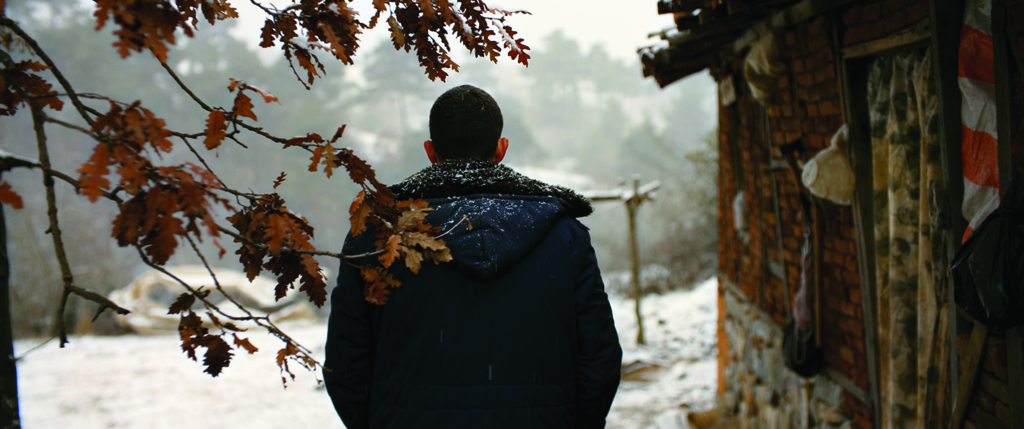
A more mundane study of class conflict came with Ceylan’s third feature, Distant (2002), his first to screen at Cannes. Though it’s perhaps his most minimalist movie, told with barely any dialogue, you could make a case that it’s an odd-couple comedy: country bumpkin Yusuf (Mehmet Emin Toprak) comes to stay at the apartment of his ‘intellectual’ photographer-cousin Mahmut (Muzaffer Özdemir). Distant is ‘a criticism of how we live in cities’, Ceylan says,[20]Nuri Bilge Ceylan, quoted in Joan Dupont, ‘Keeping It All in the Family’, International Herald Tribune, 24–25 May 2003, available at <http://www.nbcfilm.com/uzak/press_heraldtribunejoan.php>, accessed 17 August 2018. those migrating to Istanbul losing the collective spirit of the rural villages they grew up in, retreating into isolation and individualism, Mahmut’s flat his self-appointed prison. All of this is close to home: Ceylan grew up in a tiny community in rural Turkey and ended up in Istanbul. The film was shot in his own apartment, and Yusuf is played by his real-life cousin[21]Jonathan Romney, ‘Nuri Bilge Ceylan: The Action Man’, The Independent, 11 February 2007, <https://www.independent.co.uk/arts-entertainment/films/features/nuri-bilge-ceylan-the-action-man-435980.html>, accessed 17 August 2018. (who died, tragically, soon after the pic’s premiere in Istanbul[22]Howard Feinstein, ‘DVD Re-run Interview: Nuri Bilge Ceylan Talks About the Truths of Distant’, IndieWire, 21 March 2005, <https://www.indiewire.com/2005/03/dvd-re-run-interview-nuri-bilge-ceylan-talks-about-the-truths-of-distant-78347/>, accessed 17 August 2018.). Ceylan, too, worked as a photographer, and found himself growing isolated, pretentious, filled with ennui – the main character a barely veiled self-portrait. ‘I used to make characters out of the parts of my personality I hated most,’ Ceylan has confessed.[23]Nuri Bilge Ceylan, quoted in Héctor Llanos Martínez, ‘Nuri Bilge Ceylan: Once upon a Time in Anatolia’, Dazed, 20 March 2012, <http://www.dazeddigital.com/artsandculture/article/12869/1/nuri-bilge-ceylan-once-upon-a-time-in-anatolia>, accessed 17 August 2018.
Autobiographical elements were standard practice for the filmmaker during his early career. Ceylan’s feature debut, The Small Town, was about three generations of family living in a rural community, played by his real family. ‘My friends, relatives, my mother and father, all acted in the film, with my parents playing the role of the grandparents,’ he recounts.[24]Nuri Bilge Ceylan, quoted in Indu Shrikent, ‘An Interview with Nuri Bilge Ceylan’, Cinemaya, no. 43, 1999, available at <http://www.nbcfilm.com/kasaba/press_cinemayaintview.php>, accessed 17 August 2018. The original story was written by his sister, and was based on real events from their childhood. It opens with a class of children, in a snowbound rural school, reading texts aloud. These are essentially Ceylan’s thematic preoccupations put into simple words. One, called ‘Love and Loyalty in the Family’, offers: ‘Families are like small societies. They share joy and sorrow.’ Another, ‘The Rules That Regulate Social Life’, teaches the kids that ‘rules prevent the individual from acting selfishly within society’, and that those who ‘don’t obey these rules’ must ‘suffer the consequences’. The Small Town is a very clunky first film, its primitive camerawork and need to overdub voices via automated dialogue replacement making for ‘a bad experience’[25]Ceylan, quoted in Andrew, ‘Nuri Bilge Ceylan’, op. cit. for the debutant director. Ceylan also felt guilty about using his parents,[26]Nuri Bilge Ceylan, quoted in Stuart Jeffries, ‘Yoghurt and Murder with Nuri Bilge Ceylan’, The Guardian, 1 March 2012, <https://www.theguardian.com/film/2012/feb/29/nuri-bilge-ceylan-interview>, accessed 17 August 2018. which led to Clouds of May (1999), a meta-movie mea culpa in which a filmmaker (Özdemir, again a Ceylan stand-in) returns to his rural hometown to make a movie starring his family. ‘I wanted to show the bad things about being an artist, the way we quite casually exploit people,’ Ceylan says.[27]Nuri Bilge Ceylan, quoted in Fiachra Gibbons, ‘Death in Yenice’, The Guardian, 6 May 2004, <https://www.theguardian.com/film/2004/may/06/turkey.world>, accessed 17 August 2018.
Distant is ‘a criticism of how we live in cities’, Ceylan says, those migrating to Istanbul losing the collective spirit of the rural villages they grew up in, retreating into isolation and individualism.
During this period, Ceylan operated at peak DIY: producing, directing, photographing and editing his films, and then serving as their sales agent, even once he’d been accepted at Cannes. He crossed a final Renaissance-man frontier with Climates (2006) – the first of an unbroken run of pictures to premiere at Cannes – in which he also starred, opposite his wife and ongoing co-writer, Ebru Ceylan (though he’d later lament that his experience as actor, directing himself, ‘was awful’[28]Nuri Bilge Ceylan, quoted in Kaleem Aftab, ‘Nuri Bilge Ceylan on Collaborative Writing, Discarding a Screenplay and Returning to Russian Literature’, Filmmaker, 24 March 2016, <https://filmmakermagazine.com/97819-nuri-bilge-ceylan-on-collaborative-writing-discarding-a-screenplay-and-returning-to-russian-literature>, accessed 17 August 2018.). Playing a husband and wife whose marriage is falling apart (the Ceylans are not ‘afraid to talk about the dark side of life’, shares the director[29]Ceylan, quoted in Andrew, ‘Nuri Bilge Ceylan’, op. cit.), the pair threw themselves into a drama coursing with silent resentment, alienation, toxic masculinity and dark desires – told, again, with an absence of dialogue. It marks Ceylan visually coming into his own, using nascent digital technology to look closely at the beads of sweat on his wife’s skin, or stage a beautiful, symbolist final shot in which she, crying silently in the falling snow, fades away to nothingness.
Three Monkeys would, two years later, feature another memorable, digitally aided closing image, in which Eyüp, dirty deeds done, stands on the rooftop of his apartment block gazing at a gathering storm on the horizon. Over time, Ceylan would become both increasingly visual as a filmmaker (the twilight shots of cars creeping along the horizon in Once upon a Time in Anatolia, the ultra-vivid colour grading of the bucolic countryside in The Wild Pear Tree) and increasingly verbal as a writer.
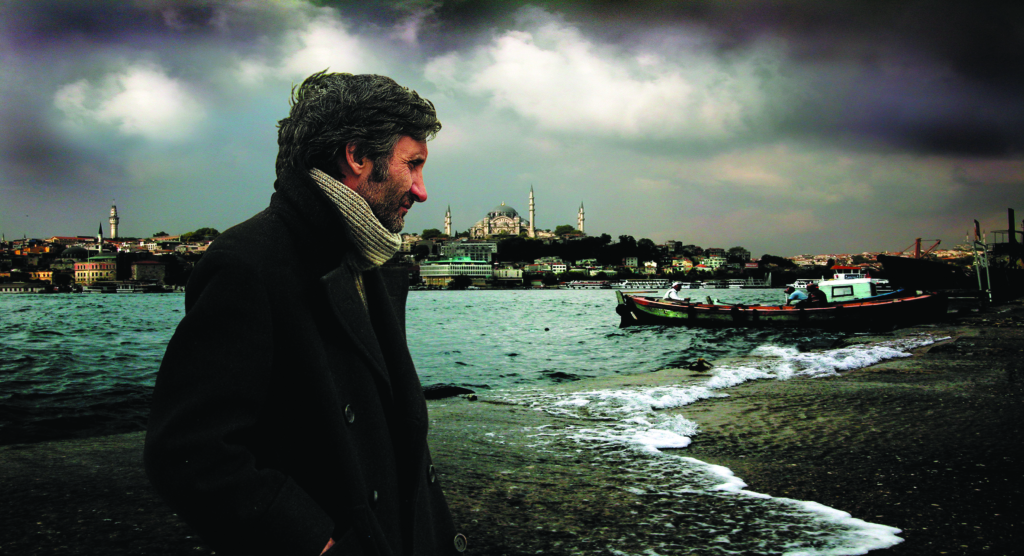
As a budding filmmaker, Ceylan was ‘afraid of dialogue’,[30]Ceylan, quoted in Aftab, op. cit. but that began to change with Once upon a Time in Anatolia. The first film to stretch out into the languorous rhythms and long running times that have come to define his work, it opens with scores of essentially incidental dialogue, a crew of moustachioed men – local and federal policemen, a prosecutor, a doctor, a pair of drivers – pattering on about yoghurt, lamb, prostates and workplace politics as they wander on a wild-goose chase in search of a body, the killer having been too drunk to remember where he buried it. When one local suggests that this misadventure will soon become a favourite anecdote (‘You can tell it like a fairytale: “Once upon a time in Anatolia, when I was working out in the sticks, I remember this one night that began like this …”’), we get a hint of what the film is about: the nature of storytelling. This is emphasised by the telling – and retelling, thrice over – of a fable from local folklore, in which a radiant beauty prophesied her own end, dropping dead at the very moment she had solemnly foreseen. As local prosecutor Nusret (Taner Birsel) and cosmopolitan doctor Cemal (Muhammet Uzuner) toss this story back and forth, all while searching for the truth behind their current investigation, Anatolia captures Ceylan’s concern with how narratives are told, and how they can represent, elude or distort simple, quaint notions of truth (‘people try to protect themselves; everybody has something they want to hide,’ Ceylan has said. ‘When they tell you a story, they make themselves the hero of that story’[31]Geoff Andrew, ‘Beyond the Clouds: An Interview with Nuri Bilge Ceylan’, Senses of Cinema, issue 32, July 2004, <http://sensesofcinema.com/2004/feature-articles/nuri_bilge_ceylan/>, accessed 17 August 2018.). Even an autopsy becomes another form of storytelling, a modern riff on divining entrails in which the findings are to be interpreted and communicated, furthering the narrative of the deceased while, really, saying more about the living.
After Winter Sleep pushed forward into even more dramatic monologues, The Wild Pear Tree arrives as Ceylan’s wordiest film, delivering reams of dialogue and even verbose voiceover (like: ‘Rupture and separation lie in wait for everything beautiful. In which case, why not treat these tribulations as constructive disasters that help us pierce our own mysteries?’). Its setting and dramatic set-up are familiar for the director: upon graduating from university, Sinan (Doğu Demirkol), a budding writer, harbours dreams of publishing his ‘quirky auto-fiction meta-novel’ about the environment he grew up in. Such intellectual ambition stands in contrast to the rural village he returns home to, where his gruff grandad, Recep (Tamer Levent), still tends to a farm using traditional methods, and his schoolteacher father, Idris (Murat Cemcir), is gambling away his retirement money. In short, it’s a movie about an artist from a poor, rural background yearning for a wealthy, urbane life, while also being about a young man seeking approval from his father, no matter how shitty a parent pops is.
The Wild Pear Tree may be full of sprawling, existential discussions about life, art, religion and the ineffable, but, when it inhabits the domestic and dwells among the family unit, the words suddenly stall.
The Wild Pear Tree is most memorable for its use of tracking shots (like a memorable, but inessential, shot following a dog running through the snow before it leaps into the river) and its lengthy conversations (there’s a philosophical discussion between Sinan and some apple-picking pals about religion, the interpretation of religious texts, religious vs secular societies, faith vs truth, free will, theory of mind and social values that’s even longer and more sprawling than what’s within these parentheses would imply). Ceylan, long one of cinema’s more static directors, throws himself into motion, following people through the garrulous conversations. When Sinan calls up an old pal who now works for the police, the camera holds on him as he talks and walks, from up on the bluffs overlooking the village down into town. Later, in the film’s lengthy centrepiece, Sinan heads to the closest city, Çanakkale, to take his manuscript to a local bookstore. There, he encounters an acclaimed writer, Süleyman (Serkan Keskin), and badgers him into a combative conversation about the writer’s life, the role of literature in society and the artist’s responsibility to make moral stands in their work. The back-and-forth borders on hostile, Suleyman quickly growing exasperated with being taken to task by this young idealist. Literary ideals are, he spits, for aspiring writers, or never-gonna-be writers; working writers are devoted only to their work, the toil of putting words on page. This scene doesn’t play as a single tracking shot, but cuts often between different angles and distances – Ceylan, for the first time, looking like a director who shot coverage. If that isn’t enough of a change in style, The Wild Pear Tree paints the romanticised environment in such brightly coloured shades as to resemble postcards, uses dream sequences to disorient the viewer and even employs classical music (Johann Sebastian Bach’s Passacaglia and Fugue in C minor) as score.
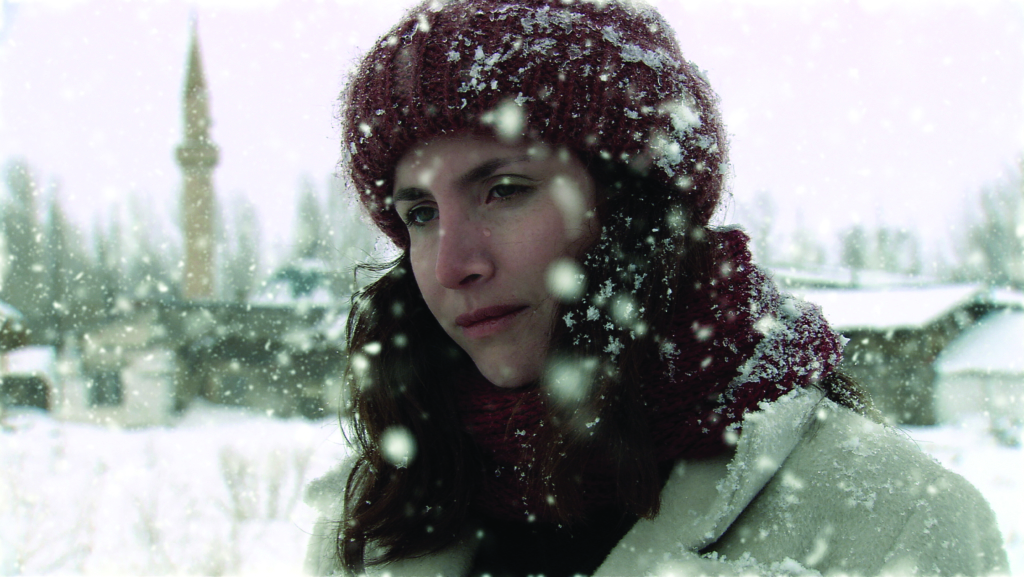
Of course, running (or, perhaps, walking) for over three hours, Ceylan’s latest film is hardly going to be the one to break through to a new audience – especially given its drama is not just evasive, but literally about the way people are evasive. The filmmaker’s theme of people refusing to speak the truth is manifest in a scene in which son can’t bring himself to confront his father over money that daddy dear has stolen from him to gamble – patriarchy, as ever, a paralysing power. The Wild Pear Tree may be full of sprawling, existential discussions about life, art, religion and the ineffable, but, when it inhabits the domestic and dwells among the family unit, the words suddenly stall: wife and daughter silently watching TV; father and son retreating into their rooms, deeper into their own thoughts, their own isolation, their own depression. The film flirts with the idea that these men of the mind, stewing over failed dreams, must be tending to suicidal impulses, nearing the end of their (literal) ropes – a gloomy pall hanging over the idyllic rural environs evoking the director’s Russian literary heroes. ‘All my films have been about the distance between people,’ Ceylan says.[32]Ceylan, quoted in Dupont, op. cit. ‘People are lonely in life […] This is the most tragic aspect of life, this melancholy: nothing else seems to be worth making a film about.’[33]Ceylan, quoted in Jafaar, op. cit.
Endnotes
| 1 | Nuri Bilge Ceylan, quoted in Benjamin Secher, ‘Nuri Bilge Ceylan on Once upon a Time in Anatolia’, The Telegraph, 15 March 2012, <https://www.telegraph.co.uk/culture/film/filmmakersonfilm/9146812/Nuri-Bilge-Ceylan-on-Once-Upon-a-Time-in-Anatolia.html>, accessed 17 August 2018. |
|---|---|
| 2 | Nuri Bilge Ceylan, quoted in Geoff Andrew, ‘Nuri Bilge Ceylan’, The Guardian, 6 February 2009, <https://www.theguardian.com/film/2009/feb/06/nuri-bilge-ceylan-interview-transcript>, accessed 17 August 2018. |
| 3 | ibid. |
| 4 | Nuri Bilge Ceylan, quoted in Ali Jafaar, ‘Snow Better Blues’, Sight & Sound, vol. 17, no. 2, February 2007, available at, <http://www.nbcfilm.com/iklimler/press_sightandsoundinterview.php>, accessed 17 August 2018. |
| 5 | Gökhan Tiryaki, quoted in Will Tizard, ‘Gokhan Tiryaki on Working with Palme d’Or Winner Nuri Bilge Ceylan’, Variety, 21 November 2014, <https://variety.com/2014/artisans/news/gokhan-tiryaki-on-working-with-palme-dor-winner-nuri-bilge-ceylan-1201362580/>, accessed 17 August 2018. |
| 6 | Nuri Bilge Ceylan, quoted in Dave Calhoun, ‘Nuri Bilge Ceylan Interview’, Time Out London, <https://www.timeout.com/london/film/nuri-bilge-ceylan-interview>, accessed 17 August 2018. |
| 7 | Nuri Bilge Ceylan, quoted in Michael Phillips, ‘Three Monkeys at Present Is Toast of Cannes’, Chicago Tribune blog, 16 May 2008, <http://featuresblogs.chicagotribune.com/talking_pictures/2008/05/cannes-franceth.html>, accessed 17 August 2018. |
| 8 | ‘Nuri Bilge Ceylan’, Wikipedia, <https://en.wikipedia.org/wiki/Nuri_Bilge_Ceylan>, accessed 17 August 2018. |
| 9 | Nuri Bilge Ceylan, quoted in Eric Kohn, ‘Winter Sleep Director Nuri Bilge Ceylan Explains Why He’s OK with a Small Audience for His Films’, IndieWire, 19 December 2014, <https://www.indiewire.com/2014/12/winter-sleep-director-nuri-bilge-ceylan-explains-why-hes-ok-with-a-small-audience-for-his-films-66815>, accessed 17 August 2018. |
| 10 | Nuri Bilge Ceylan, quoted in Rachel Donadio, ‘A Director Holds Up a Mirror to Turkey’, The New York Times, 22 December 2014, <https://www.nytimes.com/2014/12/23/movies/winter-sleep-a-nuri-bilge-ceylan-take-on-turkish-life.html>, accessed 17 August 2018. |
| 11 | Nuri Bilge Ceylan, quoted in SF Said, ‘Modern Master in the Old Style’, The Telegraph, 21 May 2004, available at <http://www.nbcfilm.com/uzak/press_dailytelegraphsaid.php>, accessed 17 August 2018. |
| 12 | Ceylan, quoted in Calhoun, op. cit. |
| 13 | Mileta Rien, ‘Once upon a Time in Anatolia’, screenhub, 26 November 2012, <http://www.screenhub.com.au/news-article/reviews/film/mileta-rien/once-upon-a-time-in-anatolia-192925>, accessed 17 August 2018. |
| 14 | Ceylan, quoted in Calhoun, op. cit. |
| 15 | Ceylan, quoted in Secher, op. cit. |
| 16 | Ceylan, quoted in Andrew, ‘Nuri Bilge Ceylan’, op. cit. |
| 17 | Ceylan, quoted in Kohn, op. cit. |
| 18 | David Barker, ‘“I Always Try to Find Something Better”: Nuri Bilge Ceylan on Winter Sleep’, Filmmaker, 17 December 2014, <https://filmmakermagazine.com/88728-i-always-try-to-find-something-better-nuri-bilge-ceylan-on-winter-sleep/>, accessed 17 August 2018. |
| 19 | Nuri Bilge Ceylan, quoted in Carlos Aguilar, ‘Eye Piece: Snowy Mountains, Ice Hearts in Nuri Bilge Ceylan’s Winter Sleep’, MovieMaker, 14 January 2015, <http://www.moviemaker.com/archives/interviews/narrative-harmony-nuri-bilge-ceylan-ideal-visuals-winter-sleep/>, accessed 17 August 2018. |
| 20 | Nuri Bilge Ceylan, quoted in Joan Dupont, ‘Keeping It All in the Family’, International Herald Tribune, 24–25 May 2003, available at <http://www.nbcfilm.com/uzak/press_heraldtribunejoan.php>, accessed 17 August 2018. |
| 21 | Jonathan Romney, ‘Nuri Bilge Ceylan: The Action Man’, The Independent, 11 February 2007, <https://www.independent.co.uk/arts-entertainment/films/features/nuri-bilge-ceylan-the-action-man-435980.html>, accessed 17 August 2018. |
| 22 | Howard Feinstein, ‘DVD Re-run Interview: Nuri Bilge Ceylan Talks About the Truths of Distant’, IndieWire, 21 March 2005, <https://www.indiewire.com/2005/03/dvd-re-run-interview-nuri-bilge-ceylan-talks-about-the-truths-of-distant-78347/>, accessed 17 August 2018. |
| 23 | Nuri Bilge Ceylan, quoted in Héctor Llanos Martínez, ‘Nuri Bilge Ceylan: Once upon a Time in Anatolia’, Dazed, 20 March 2012, <http://www.dazeddigital.com/artsandculture/article/12869/1/nuri-bilge-ceylan-once-upon-a-time-in-anatolia>, accessed 17 August 2018. |
| 24 | Nuri Bilge Ceylan, quoted in Indu Shrikent, ‘An Interview with Nuri Bilge Ceylan’, Cinemaya, no. 43, 1999, available at <http://www.nbcfilm.com/kasaba/press_cinemayaintview.php>, accessed 17 August 2018. |
| 25 | Ceylan, quoted in Andrew, ‘Nuri Bilge Ceylan’, op. cit. |
| 26 | Nuri Bilge Ceylan, quoted in Stuart Jeffries, ‘Yoghurt and Murder with Nuri Bilge Ceylan’, The Guardian, 1 March 2012, <https://www.theguardian.com/film/2012/feb/29/nuri-bilge-ceylan-interview>, accessed 17 August 2018. |
| 27 | Nuri Bilge Ceylan, quoted in Fiachra Gibbons, ‘Death in Yenice’, The Guardian, 6 May 2004, <https://www.theguardian.com/film/2004/may/06/turkey.world>, accessed 17 August 2018. |
| 28 | Nuri Bilge Ceylan, quoted in Kaleem Aftab, ‘Nuri Bilge Ceylan on Collaborative Writing, Discarding a Screenplay and Returning to Russian Literature’, Filmmaker, 24 March 2016, <https://filmmakermagazine.com/97819-nuri-bilge-ceylan-on-collaborative-writing-discarding-a-screenplay-and-returning-to-russian-literature>, accessed 17 August 2018. |
| 29 | Ceylan, quoted in Andrew, ‘Nuri Bilge Ceylan’, op. cit. |
| 30 | Ceylan, quoted in Aftab, op. cit. |
| 31 | Geoff Andrew, ‘Beyond the Clouds: An Interview with Nuri Bilge Ceylan’, Senses of Cinema, issue 32, July 2004, <http://sensesofcinema.com/2004/feature-articles/nuri_bilge_ceylan/>, accessed 17 August 2018. |
| 32 | Ceylan, quoted in Dupont, op. cit. |
| 33 | Ceylan, quoted in Jafaar, op. cit. |
